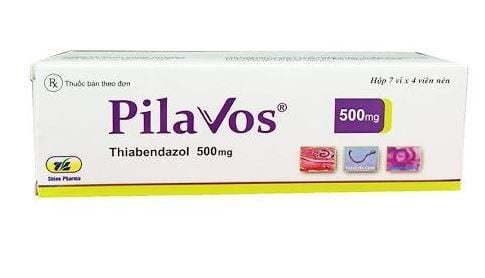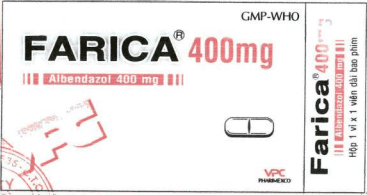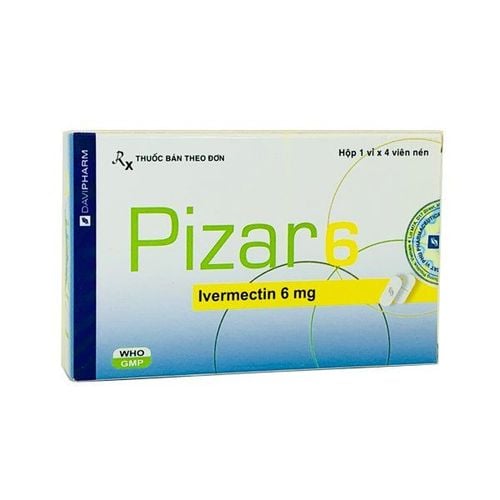Taking deworming medicine and keeping a regular deworming schedule will help you eliminate harmful parasites, improve digestion, and boost immunity. Let's explore useful information about deworming medicine, such as: Why is deworming necessary? How long after taking deworming medicine do you have a bowel movement? Do you pass worms in your stool?
1. Why is Deworming Necessary?
Worms are parasites that invade the human body, primarily residing in the intestines, where they can survive and absorb nutrients from the host. Most cases of worm infections occur in tropical regions with humid climates or developing countries due to high-risk food and water sources.
In Vietnam, common intestinal worms in humans include roundworms, hookworms, and whipworms. Children are also prone to pinworm infections. Infected individuals often experience digestive disorders, abdominal pain, malnutrition, anemia, and other health issues. Therefore, the Ministry of Health recommends that everyone should proactively take deworming medicine regularly to protect their health and that of their families.
Currently, deworming medicines on the market work by either killing or paralyzing the worms attached to the body. After that, the worms are expelled through feces or urine. This is the purpose of using deworming medicine, aiming to eliminate worms from the body by all means.
2. Timing and Symptoms After Deworming
Modern deworming medicines do not require fasting or taking laxatives (purgatives) as before. You can take deworming medicine at any time of the day after meals, but it is best to take it 2 hours after dinner.
For children, parents should crush the tablet and mix it with water for easy consumption. To increase effectiveness, you should chew the tablet before swallowing it with water. After taking the medicine, you can eat and drink normally.
Note: Deworming medicine may cause some side effects such as nausea, dizziness, headache, digestive disorders, abdominal pain, and transient diarrhea. However, you do not need to worry too much, as these symptoms are usually mild and self-resolving. In rare cases, children may have allergic reactions to the medicine, with symptoms such as rash, itching, and hives.
3. How Long After Taking Deworming Medicine Do Worms Die?
After taking deworming medicine, it will start to be absorbed and take effect immediately, but it may take a few days for the medicine to "soak in" and kill all the worms. If your doctor prescribes deworming, follow the dosage and timing instructions carefully.
Note: Albendazole and Mebendazole do not kill worm eggs, so you still risk reinfection or transmitting it to others. Therefore, to ensure effective deworming and prevent recurrence, you should take an additional dose of medicine after 2 weeks.
4. How Long After Taking Deworming Medicine Do You Have a Bowel Movement?
The time it takes to have a bowel movement after taking deworming medicine varies depending on the level of worm infection. When the medicine enters the intestines, it will be broken down and needs a certain amount of time to weaken the worms. Typically, after deworming, many people will feel the urge to have a bowel movement within 2 hours. However, some may take 2-3 days to feel the need to have a bowel movement or experience symptoms such as abdominal pain and frequent bowel movements. These are side effects of the medicine and will disappear after 1-2 days, so you do not need to worry too much.
Do you pass worms in your stool after taking deworming medicine? As mentioned above, after taking deworming medicine for a few hours or days, you will feel the need to have a bowel movement to expel the worms in your stool. Previous deworming medicines eliminated dead or intact worms, so you could see them expelled in your stool. However, modern deworming medicines dissolve the worms in the stool, so you will not encounter the situation of "passing worms in your stool" anymore.
5. When Should You Deworm?
You will know you need to take deworming medicine when you notice the following signs:
Loss of appetite, reduced appetite;
Frequent nausea upon waking or upper abdominal pain, loose stools;
Itching around the anus (especially at night);
Restlessness, difficulty sleeping;
Frequent drooling, teeth grinding during sleep;
Itching, hives on hands, feet, buttocks, recurring frequently;
Pale skin, slow growth, fatigue, poor concentration;
Fever for several days, frequent coughing, coughing up blood.
And you should avoid deworming in the following cases:
People with acute illnesses, fever over 38°C;
People with chronic diseases such as heart failure, liver failure, kidney failure, asthma;
People with a history of allergies to the components of deworming medicine;
Pregnant women in the first 3 months;
Breastfeeding women;
Children under 12 months old.
This article has provided essential information about deworming medicine, how to take deworming medicine correctly. We hope readers have answered some of their questions: "How long after taking deworming medicine do you have a bowel movement? Do you pass worms in your stool?" Don't forget to mark your deworming date on your family's calendar to remember your regular deworming schedule.
To arrange an appointment, please call … or make your reservation directly HERE. You may also download the MyVinmec app to schedule appointments faster and manage your reservations more conveniently













